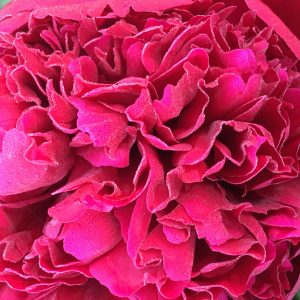
This week I reflected on my time spent working as an intern at Jello Mold Farm, and contemplating the direction and focus I need to take to grow a sustainable farm based business. The internship gave me valuable insights into the inner workings of the Seattle Wholesale Growers Market Cooperative, and the realities of farming as a livelihood. The owners of Jello Mold generously shared their vast amounts of knowledge, experience, and advice. They were incredibly open and trusting in sharing their personal financial information. This allowed me to gain a clear picture of the practicalities of running a farm based business.
I was impressed with the lean farm practices implemented in the daily operations at Jell Mold Farm.
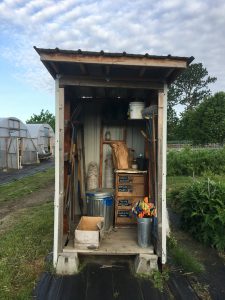
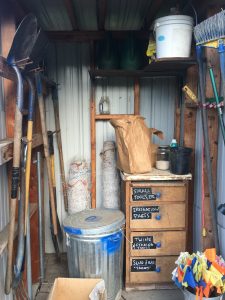
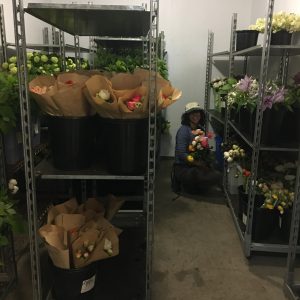
Diane stressed the importance of time saving techniques such and organization. Procona cooler buckets are used to store and transport products. Diane uses a color code system to harvest and store the flowers and woody greens. The white and black buckets are for products sold on the market floor. Green buckets are only used for pre sold orders, this helps eliminate mistakes to special order customers. Wasted time equals wasted money. Small farms operate on a tight budget of time and money, organization saves time and money.
A refrigerated room is essential for storing flowers or food for market. The Cool Bot system can easily be installed for under a thousand dollars. The unit at Jello Mold is 9 by 16 feet, the cooling system cost $650. Dennis stressed the importance of following the manufacturer’s instructions. Their room is lined with plywood covered in mildew resistant paint, and foam insulation is used instead of fiber.
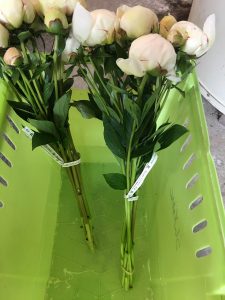
https://www.pagter.com/en/procona
Moving forward
I feel ready to move forward and officially start a wholesale cut flower business on my property. Going through the Enterprise through Equity program helped me create a comprehensive business plan and map out the necessary steps needed operate a successful small business. It was especially helpful research the start up and operating cost associated with opening a farm based business. I was required to map out a contingency plan to fall back on if my business does not make the money I anticipate during the first years in business. This exercise helped to remove the fear of failure and move forward with starting a farm.
Working as an intern at Jello Mold gave me a snapshot of the realities of making a living as a farmer. I also gleaned some very useful information from farmers who learned through trial and error. Diane and Dennis recommended I consider installing more hoop houses than I had previously considered. They also suggested I buy crop insurance from the USDA whole farm revenue protection plan. I also had to reconsider some of the plant choices I was set on growing, such as Hypericum, Spirea, Limelight Hydrangea, and Snowball Viburnum. Learning and working with farmers offers access to information accumulated through hands on experience.
